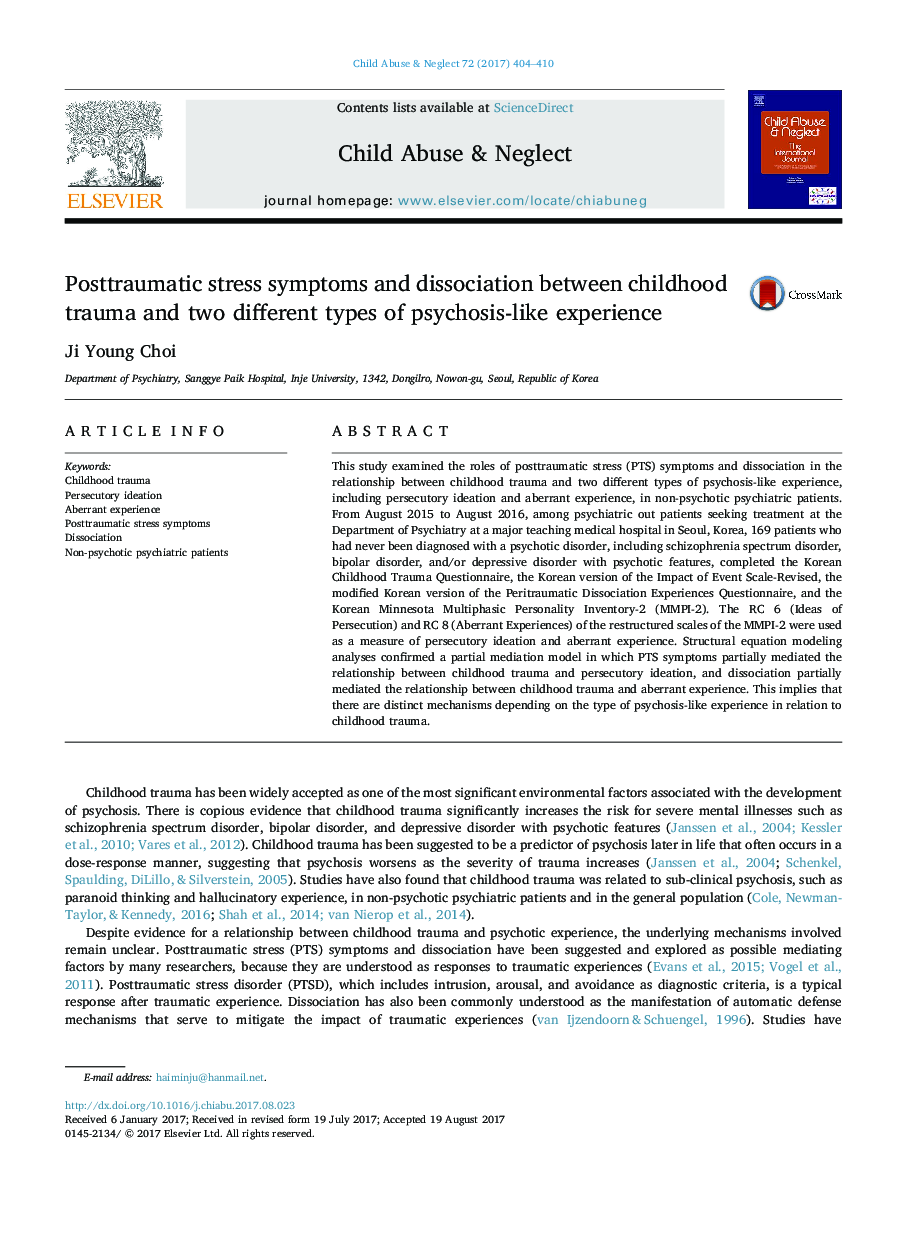| Article ID | Journal | Published Year | Pages | File Type |
|---|---|---|---|---|
| 4935931 | Child Abuse & Neglect | 2017 | 7 Pages |
Abstract
This study examined the roles of posttraumatic stress (PTS) symptoms and dissociation in the relationship between childhood trauma and two different types of psychosis-like experience, including persecutory ideation and aberrant experience, in non-psychotic psychiatric patients. From August 2015 to August 2016, among psychiatric out patients seeking treatment at the Department of Psychiatry at a major teaching medical hospital in Seoul, Korea, 169 patients who had never been diagnosed with a psychotic disorder, including schizophrenia spectrum disorder, bipolar disorder, and/or depressive disorder with psychotic features, completed the Korean Childhood Trauma Questionnaire, the Korean version of the Impact of Event Scale-Revised, the modified Korean version of the Peritraumatic Dissociation Experiences Questionnaire, and the Korean Minnesota Multiphasic Personality Inventory-2 (MMPI-2). The RC 6 (Ideas of Persecution) and RC 8 (Aberrant Experiences) of the restructured scales of the MMPI-2 were used as a measure of persecutory ideation and aberrant experience. Structural equation modeling analyses confirmed a partial mediation model in which PTS symptoms partially mediated the relationship between childhood trauma and persecutory ideation, and dissociation partially mediated the relationship between childhood trauma and aberrant experience. This implies that there are distinct mechanisms depending on the type of psychosis-like experience in relation to childhood trauma.
Related Topics
Health Sciences
Medicine and Dentistry
Perinatology, Pediatrics and Child Health
Authors
Ji Young Choi,
